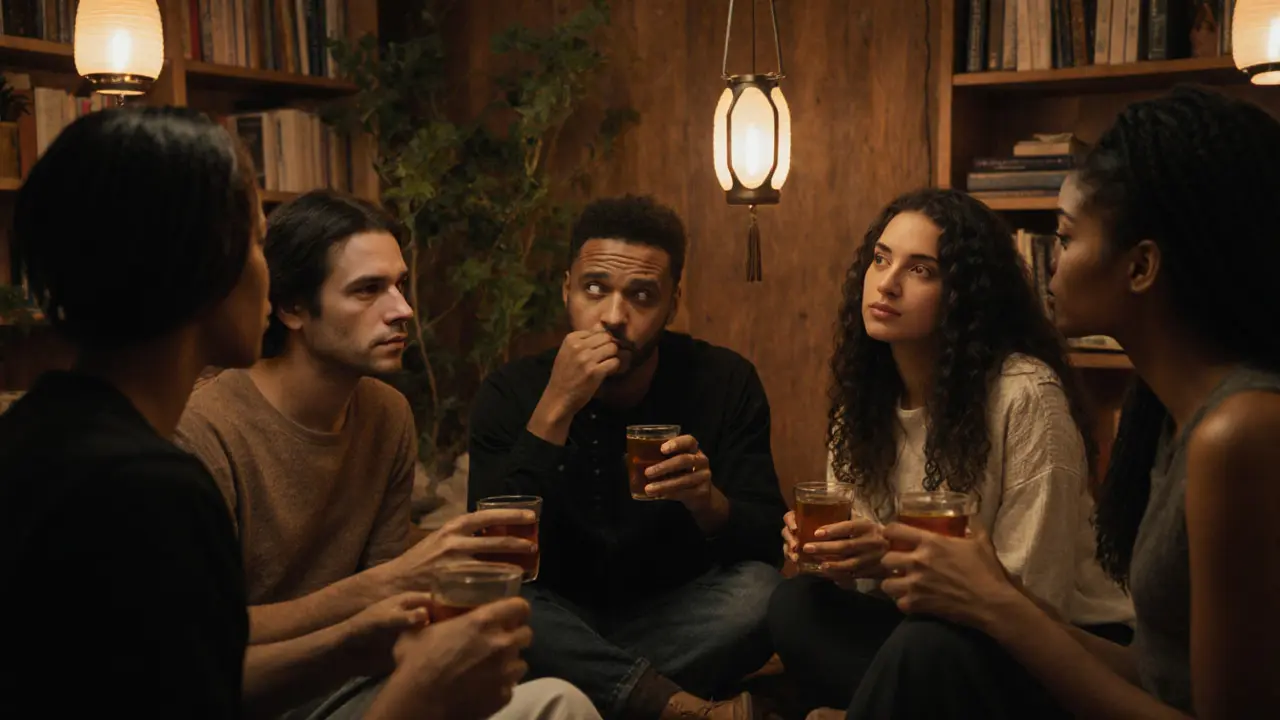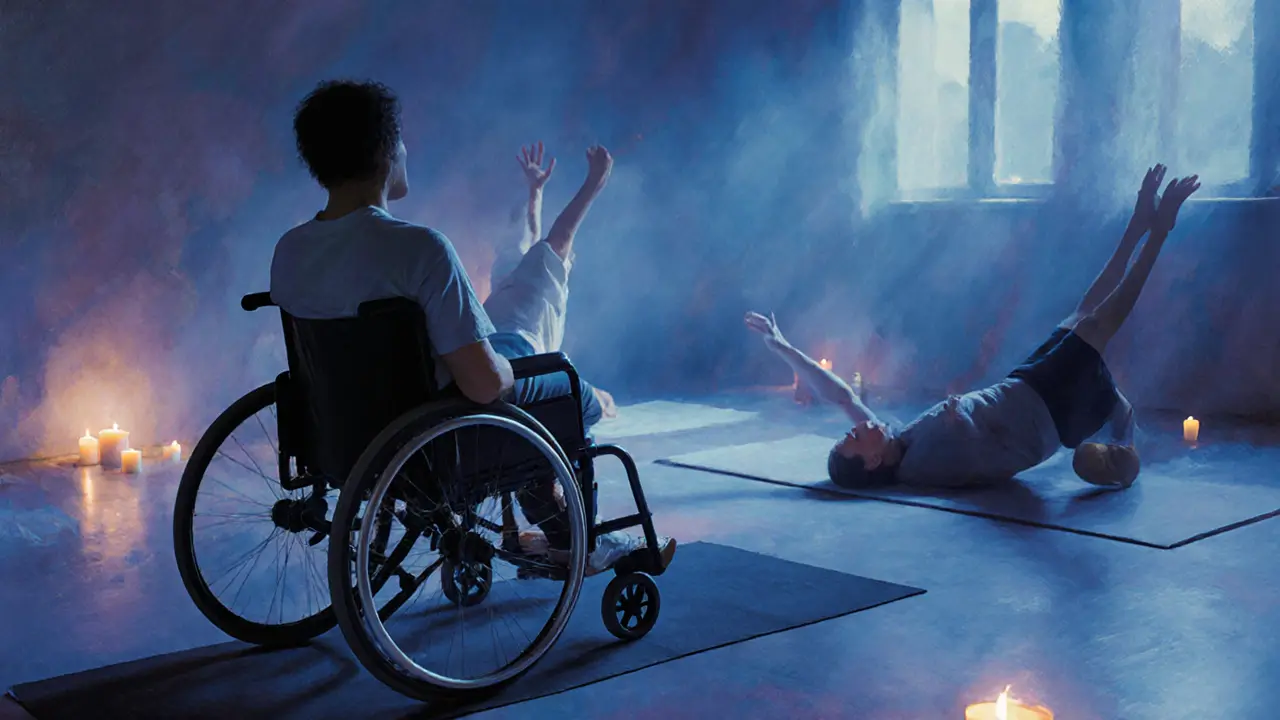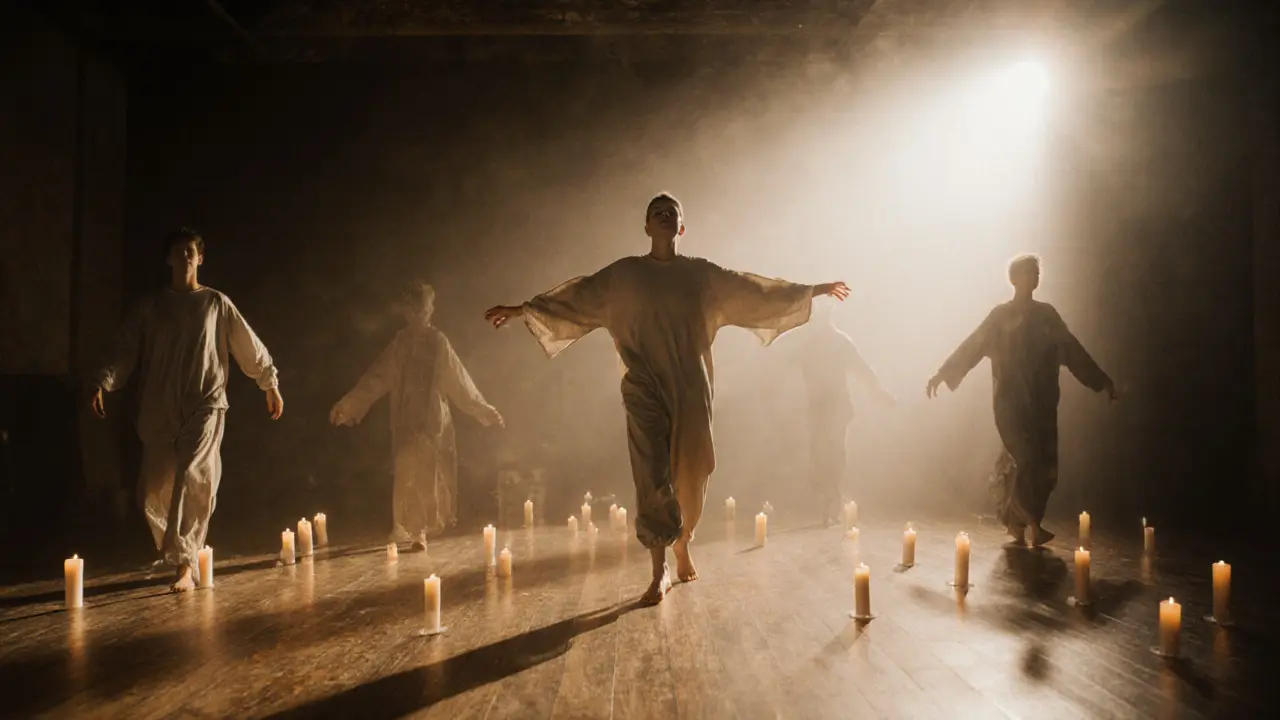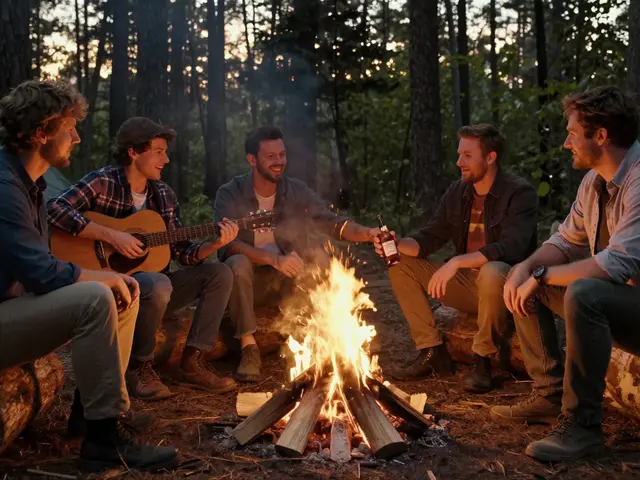You’ve probably seen the posters-dark lights, slow music, people moving like water in a dimly lit studio. Maybe you passed one on a Munich street and wondered: sensual dance workshops-is this for me? Or is it just another trendy night out with a fancy label? Let’s cut through the noise. These aren’t flirtation classes. They’re not about seduction. They’re about reconnecting with your body in a space where judgment is left at the door.
What Exactly Are Sensual Dance Workshops?
Sensual dance workshops in Munich are movement-based experiences that focus on body awareness, emotional expression, and mindful motion. Think less choreography, more flow. Less performance, more presence. You won’t learn a routine to show off at a party. Instead, you’ll explore how your body naturally wants to move when it’s not trying to impress anyone.
These sessions often blend elements of contemporary dance, contact improvisation, and somatic practices like Feldenkrais or Body-Mind Centering. The music? Slow, textured, atmospheric-think ambient electronica, acoustic cello, or even silence. The goal isn’t to get fit or memorize steps. It’s to feel.
And yes, it’s called “sensual”-not “sexual.” There’s a big difference. Sensual means tuning into the texture of your skin, the rhythm of your breath, the weight of your hips as they roll. It’s about reclaiming the quiet pleasure of movement without pressure.
Why Try This in Munich?
Munich has a quiet but growing scene for embodied practices. Unlike Berlin, which leans into wild, experimental nightlife, Munich’s approach is more grounded. Think cozy studios in old townhouses, candlelit rooms above cafés in Schwabing, or yoga studios that quietly offer these workshops on weekend evenings.
Why here? Because Munich’s residents-many of them professionals, parents, or expats-crave spaces that offer depth over distraction. After long workdays in finance, engineering, or academia, people are looking for ways to release tension without alcohol or screens. Sensual dance fills that gap.
One participant, a 42-year-old software engineer from Nuremberg who visits monthly, told me: “I didn’t think I could move without feeling awkward. By the third session, I cried-not because something sad happened, but because I finally felt free.”
What Types of Workshops Are Available?
Not all sensual dance classes are the same. Here’s what you’ll typically find in Munich:
- Women-Only Sessions - Often held in the evenings, these focus on releasing societal pressure around femininity and movement. No partners. No mirrors. Just you and your body.
- Couples’ Exploration Workshops - Designed for pairs who want to deepen non-verbal connection. No kissing, no touching without consent. It’s about reading energy, not bodies.
- Gender-Inclusive Open Classes - For anyone regardless of gender identity. These are the most popular. Expect a mix of ages, body types, and experience levels.
- Improv & Flow Nights - Once a month, some studios host free-form movement jams. No instructor. Just music, candles, and space to move however your body wants.
Most workshops last 90 to 120 minutes. They usually begin with breathwork, move into guided movement prompts, and end with a quiet closing-often sitting in silence, sipping herbal tea, and sharing one word about how you feel.
Where to Find These Workshops in Munich
You won’t find them on tourist maps. But here are the most reliable spots:
- BodySpace Studio - Located in Haidhausen, this is the most established. Run by a former dancer from Vienna, they offer weekly classes and monthly retreats. Check their website for the public calendar.
- Wunderkammer Movement Lab - A hidden gem in Schwabing. Small group sizes (max 12 people). They don’t advertise much-word of mouth is how most find them.
- Yoga & Soul - In the heart of the city, this studio offers sensual movement as part of their holistic wellness lineup. Great for beginners.
- Monthly Pop-Ups - Sometimes, workshops pop up in art galleries or repurposed churches. Follow local event pages like Munich Events Calendar or BodyMinds Munich on Instagram for announcements.
Pro tip: Don’t show up in workout gear. Wear something soft-loose pants, a tank top, bare feet. You’ll be asked to remove jewelry. Phones go in lockers. This isn’t a photo op. It’s an inner experience.

What Happens During a Session?
Here’s what you can expect step by step:
- Arrival - You’ll be greeted quietly, handed a towel and a cup of chamomile tea. No small talk. Everyone’s here to be present.
- Grounding - The facilitator leads a 10-minute breath exercise. You’ll close your eyes and focus on the rise and fall of your chest. No music yet.
- Guided Movement - The instructor gives simple prompts: “Let your spine feel like a river,” or “Move as if you’re carrying something heavy but invisible.” You don’t copy anyone. You follow your own rhythm.
- Free Movement - The music starts. No rules. You can sway, tremble, freeze, or crawl. Someone might cry. Someone might laugh. It’s all allowed.
- Closing Circle - Everyone sits in a circle. No one is forced to speak. But if you want to say one word-“light,” “heavy,” “safe”-you can. Often, that’s all you need.
It’s not about being good. It’s about being real.
Pricing and Booking
Most single sessions cost between €25 and €40. Monthly passes (4 classes) range from €90 to €140. Some studios offer sliding scale pricing-if you’re a student, on a low income, or new to this, just ask. Many facilitators will adjust the price quietly, no questions asked.
Booking is simple: most use Eventbrite or their own website. No need to call. No long forms. Just pick a date, pay online, and show up. You’ll get a confirmation email with what to wear and where to park (or take the U-Bahn).
Some studios also offer free trial classes once a month. Look for “First Time Free” on their Instagram stories.
Safety and Boundaries
This isn’t a party. It’s a sacred space.
All reputable studios in Munich follow strict consent guidelines:
- No physical contact unless explicitly invited (and even then, it’s rare).
- Everyone is asked to respect personal space-even a hand on a shoulder needs a nod.
- Facilitators are trained in trauma-informed movement. If someone seems overwhelmed, they’ll be gently guided out.
- There’s always a quiet room available if you need to step away.
- Photography is strictly forbidden. No phones allowed in the studio.
Trust your gut. If something feels off, leave. No one will judge you. In fact, most people have been there-hesitant, unsure, scared. That’s why they’re here.

Sensual Dance vs. Pole Dancing in Munich
People often confuse sensual dance with pole dancing. They’re not the same.
| Aspect | Sensual Dance Workshops | Pole Dancing Classes |
|---|---|---|
| Focus | Internal awareness, emotional release | Strength, technique, performance |
| Equipment | Mat, candles, music | Pole, grips, sometimes heels |
| Goal | Connection with self | Mastering moves, building confidence through skill |
| Atmosphere | Quiet, meditative, candlelit | Bright lights, upbeat music, sometimes club-like |
| Typical Audience | Professionals, parents, trauma survivors, creatives | Younger adults, fitness enthusiasts, performers |
| Cost per Session | €25-€40 | €20-€35 |
One isn’t better than the other. They serve different needs. If you want to build muscle and learn tricks, go for pole. If you want to feel your heartbeat in your toes, try sensual dance.
Frequently Asked Questions
Do I need any dance experience?
No. Most people have never danced before. These workshops are designed for beginners. The instructors guide you through simple prompts-not steps. You’re not being judged on how well you move. You’re being invited to move at all.
Is this a dating or pickup scene?
Absolutely not. These spaces are intentionally non-romantic. People come to heal, not to hook up. Most participants are in long-term relationships, single, or divorced. The vibe is calm, respectful, and deeply private. If someone tries to flirt, the facilitator will intervene.
What if I feel embarrassed?
You’re not alone. Almost everyone feels awkward the first time. That’s normal. The room is dark. No mirrors. No one is watching you. The instructor moves with you, not at you. After 10 minutes, the embarrassment fades. What replaces it? A quiet sense of relief.
Can I attend if I have a physical limitation?
Yes. These workshops are adaptable. Whether you use a cane, have chronic pain, or are recovering from surgery, the movement can be modified. Tell the instructor ahead of time. They’ve worked with people in wheelchairs, with prosthetics, and after cancer treatments. Movement isn’t about how far you go-it’s about how present you are.
Are these workshops religious or spiritual?
Not at all. There’s no chanting, no meditation on deities, no crystals. Some people describe it as spiritual because they feel deeply connected-but that’s a personal experience, not a doctrine. You can come with any belief system-or none at all.
Ready to Feel Again?
If you’ve spent years thinking your body was just a tool-to work, to look good, to carry stress-this might be the first time you’re invited to see it as something alive. Something worthy of listening to.
You don’t need to be graceful. You don’t need to be flexible. You don’t even need to like dancing.
You just need to show up.
One workshop. One evening. One hour of silence and movement. That’s all it takes to find out if this is what you’ve been quietly missing.




